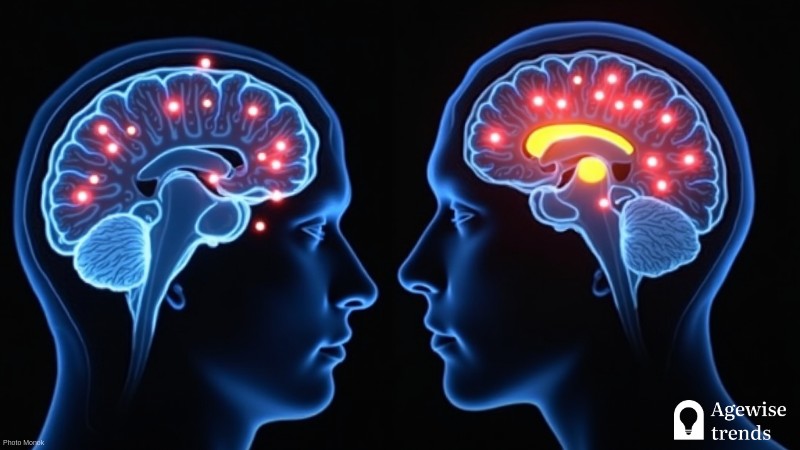Exercise is often hailed as the ultimate key to a strong and healthy body, but its magic doesn’t stop there. Beyond sculpting muscles and boosting stamina, physical activity holds the power to unlock sharper memory and improved cognitive function.
In a world where quick thinking and mental clarity are prized, staying active isn’t just about keeping fit—it’s about keeping your brain in peak condition, too.
Key Takeaways
Physical activity has been shown to boost memory and cognitive function by increasing blood flow to the brain, reducing stress, and promoting neurogenesis.
- Regular exercise can increase the size of the hippocampus, the part of the brain responsible for learning and memory.
- Staying physically active can lower the risk of developing neurodegenerative diseases like Alzheimer’s and dementia by preserving the brain’s structure and function.
- Engaging in physical activity, especially activities that require coordination or strategic thinking, can improve cognitive sharpness and reduce feelings of loneliness or isolation.
The brain-boosting power of exercise
When you engage in physical activity, your heart pumps faster, sending a surge of oxygen-rich blood throughout your body, including your brain. This increase in circulation nourishes brain cells and promotes the growth of new neurons—a process known as neurogenesis.
Regular exercise also stimulates the release of brain-derived neurotrophic factor (BDNF), a protein that strengthens the connections between neurons and plays a critical role in learning, memory, and overall cognitive resilience.
Moreover, physical activity reduces levels of cortisol, a stress hormone that can impair memory and cognitive processes when elevated for extended periods. By mitigating stress and anxiety, exercise creates an optimal mental environment for clear thinking, problem-solving, and memory retention.
Numerous studies have supported these claims. For example, research published in Nature Neuroscience highlights that moderate aerobic exercise, such as walking or cycling, can increase the size of the hippocampus—the part of the brain responsible for learning and memory.
These findings underline the profound influence that regular physical activity has on keeping the mind sharp and adaptable, regardless of age.
Exercise and aging gracefully
As we age, cognitive decline becomes a natural part of life. However, staying physically active offers a compelling way to slow this process and even reverse some of its effects. Regular exercise has been shown to lower the risk of developing neurodegenerative diseases like Alzheimer’s and dementia by preserving the brain’s structure and function.
Physical activity promotes better sleep patterns, another critical factor in maintaining cognitive health. Poor sleep, often linked to aging, can significantly impair memory consolidation and cognitive performance. By engaging in regular exercise, individuals experience deeper and more restorative sleep, ensuring the brain has adequate time to process and store new information.
Additionally, the social aspects of physical activity—whether it’s participating in group fitness classes or joining a walking club—can enhance mental well-being and cognitive sharpness. Social interaction stimulates the brain in unique ways, keeping it engaged and reducing feelings of loneliness or isolation, which are often linked to cognitive decline.
Making movement a mindful practice
While the benefits of physical activity on cognitive function are clear, finding the right kind of exercise is key. Activities that require coordination, strategic thinking, or skill development provide an added layer of brain stimulation. For instance, sports like tennis, dancing, or martial arts challenge the brain by requiring participants to process information quickly, make decisions, and adapt to changing situations.
Mind-body exercises like yoga and tai chi also deserve attention. These practices combine physical movement with mental focus, promoting mindfulness while enhancing memory and attention. Research has shown that such activities improve the brain’s executive functions, which include decision-making, emotional regulation, and goal-oriented behavior.
It’s also important to recognize that you don’t need to become a marathon runner or spend hours at the gym to experience cognitive benefits. Simple activities like brisk walking, gardening, or even short bursts of physical activity throughout the day can make a meaningful difference. Consistency, rather than intensity, is often the most critical factor in reaping the rewards of exercise for cognitive health.
A path to a sharper mind
The connection between physical activity and cognitive function is both profound and empowering. By staying active, you’re not just investing in your physical health but also in the vitality of your mind. The ability of exercise to enhance memory, improve focus, and protect against age-related cognitive decline is a testament to the body’s interconnectedness with the brain.
The science is clear: movement matters. Embrace a lifestyle that prioritizes physical activity, and you’ll likely find that your mind becomes sharper, your memory stronger, and your overall quality of life significantly improved.














